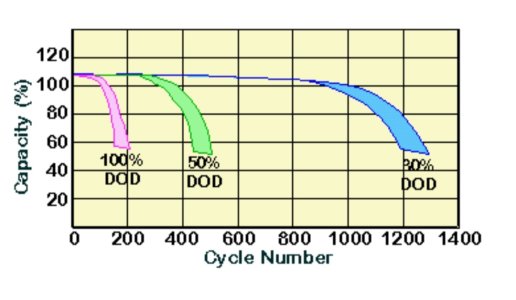john_morris_uk
Well-Known Member
We have three 135 aH wet lead acid batteries to run the domestics on our boat which we live aboard full-time for five or six months of the year. They never discharged more than about 25% and they’re charged through several hundred watts of solar and a Victron MTTP controller. There’s also a super wind generator plus a small diesel generator that whenever it’s on is charging the batteries through a Sterling three stage battery charger. Then whenever the main engine is running, there’s a 100 amp alternator that confects to domestics via a VSR.
Power and voltage and aH used are monitored by a Sterling battery monitor. I never really worry about the state of the batteries as there’s so much charging potential and the sophisticated charging systems usually have them on float soon after any bulk charge is finished.
We can’t quite remember when we last replaced the batteries, but we think it’s at at least six years ago. However they’ve suddenly decided to stop holding charge and overnight the fridge turns itself off as battery voltage drops below 11.7 V. The change has been sudden and I’ve removed all the batteries and checked the voltage on them thinking perhaps a cell on one had gone short circuit and was dragging the whole bank down. But each battery was showing 12.5 or 12.7 V offload and I could see no damage or particular problem with any of the cells when I looked down into them. (I appreciate that’s not a very good test!)
I know that some people will be suggesting we change to lithium as it looks as though we’re going to have to buy new batteries but that’s really not practical as there’s too many charging systems involved that would all have to be changed and parts availability and costs make it an probitive task to do here in the Caribbean. Fortunately, we’re in Saint Martin at the moment where there are several very large Chandlers with good stocks of deep discharge batteries. It looks as though new AGM batteries are the way ahead. (Although prices are eye watering: list price for three AGM is over $2000)
Is it unreasonable to expect the batteries to last longer than six years also even though they’re treated (as far as I’m concerned) so Kindly? What’s a reasonable battery life expectancy?
Power and voltage and aH used are monitored by a Sterling battery monitor. I never really worry about the state of the batteries as there’s so much charging potential and the sophisticated charging systems usually have them on float soon after any bulk charge is finished.
We can’t quite remember when we last replaced the batteries, but we think it’s at at least six years ago. However they’ve suddenly decided to stop holding charge and overnight the fridge turns itself off as battery voltage drops below 11.7 V. The change has been sudden and I’ve removed all the batteries and checked the voltage on them thinking perhaps a cell on one had gone short circuit and was dragging the whole bank down. But each battery was showing 12.5 or 12.7 V offload and I could see no damage or particular problem with any of the cells when I looked down into them. (I appreciate that’s not a very good test!)
I know that some people will be suggesting we change to lithium as it looks as though we’re going to have to buy new batteries but that’s really not practical as there’s too many charging systems involved that would all have to be changed and parts availability and costs make it an probitive task to do here in the Caribbean. Fortunately, we’re in Saint Martin at the moment where there are several very large Chandlers with good stocks of deep discharge batteries. It looks as though new AGM batteries are the way ahead. (Although prices are eye watering: list price for three AGM is over $2000)
Is it unreasonable to expect the batteries to last longer than six years also even though they’re treated (as far as I’m concerned) so Kindly? What’s a reasonable battery life expectancy?

